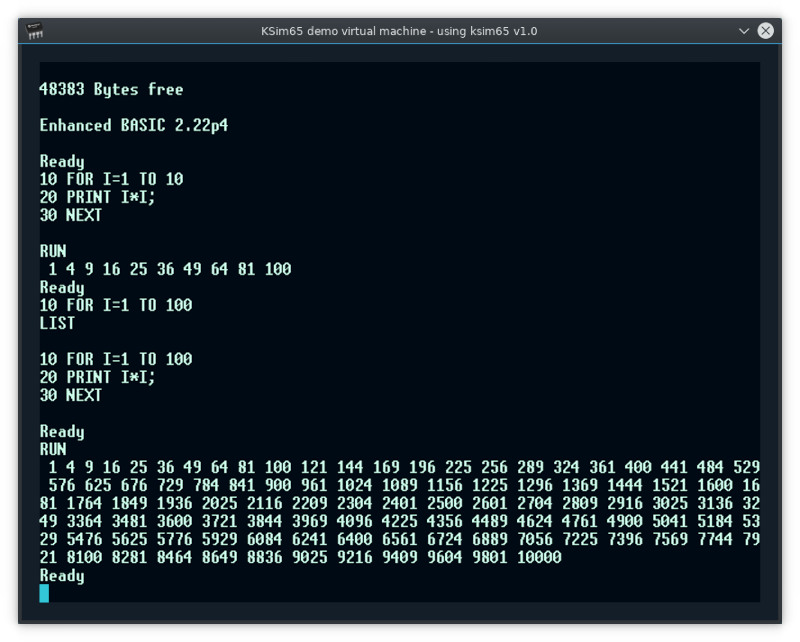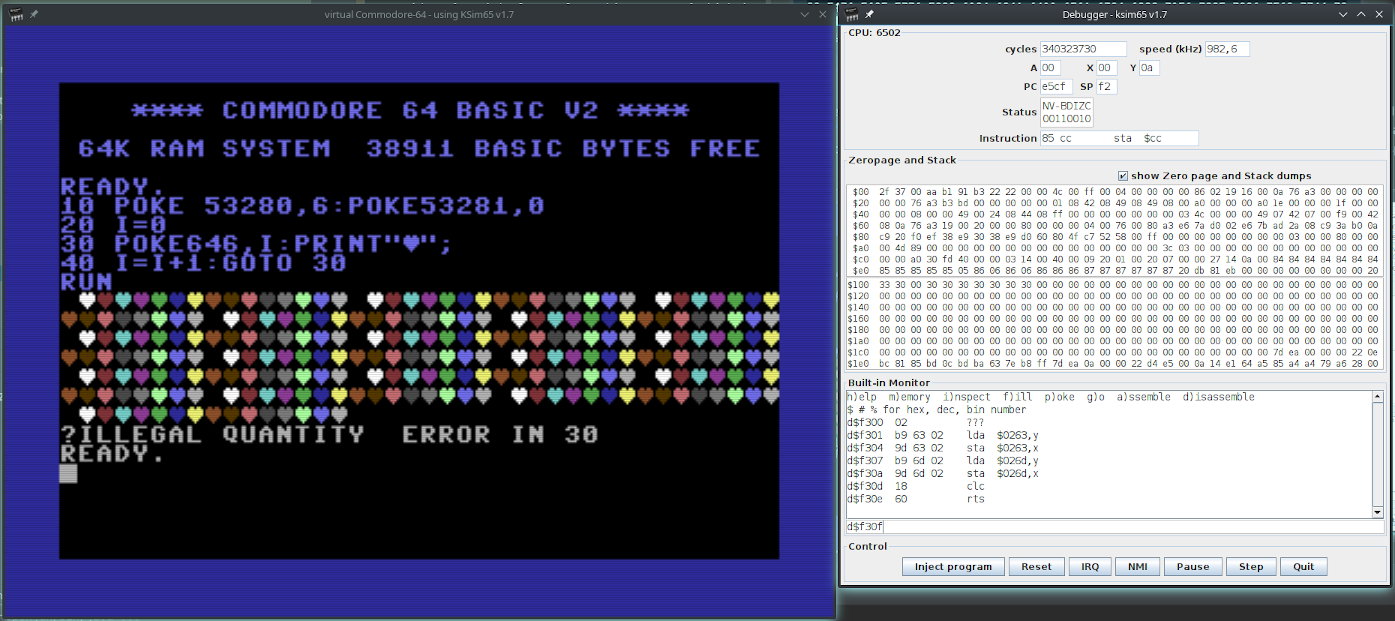2.8 KiB
KSim65 - Kotlin/JVM 6502/65C02 microprocessor simulator
Written by Irmen de Jong (irmen@razorvine.net)
Software license: MIT, see file LICENSE
This is a Kotlin/JVM library that simulates the 8-bit 6502 and 65C02 microprocessors, which became very popular in the the early 1980's.
Properties of this simulator:
- written in Kotlin. It is low-level code, but hopefully still readable :-)
- simulates various hardware components (bus, cpu, memory, i/o controllers)
- IRQ and NMI
- instruction cycle times are simulated (however the internal cpu behavior is not cycle-exact for simplicity reasons)
- has all 6502 and 65c02 instructions, including many of the 'illegal' 6502 instructions (goal is 100% eventually)
- correct BCD mode for adc/sbc instructions on both cpu types
- passes several extensive unit test suites that verify instruction and cpu flags behavior
- simple debugging machine monitor, which basic disassembler and assembler functions
- provide a few virtual example machines, one of which is a fairly capable Commodore-64
Documentation
Still to be written. For now, use the source ;-)
Using it as a library in your own project
Ksim65 is available on the JCenter maven repository.
You can simply add it as a dependency to your project. For Maven:
<dependency>
<groupId>net.razorvine</groupId>
<artifactId>ksim65</artifactId>
<version>1.8</version>
<type>pom</type>
</dependency>
For Gradle:
implementation 'net.razorvine:ksim65:1.8'
Update the version as required.
Virtual machine examples
Three virtual example machines are included.
The default one starts with gradle run or run the ksim64vm command.
There's another one ehBasicMain that is configured to run the "enhanced 6502 basic" ROM:
Finally there is a fairly functional C64 emulator running the actual roms (not included, but can be easily found elsewhere for example with the Vice emulator. The emulator supports character mode, bitmap mode (hires and multicolor), hardware sprites and various timers and IRQs. It's not cycle perfect, and the video display is drawn on a per-frame basis, so raster splits/rasterbars are impossible. But many other things work fine.




